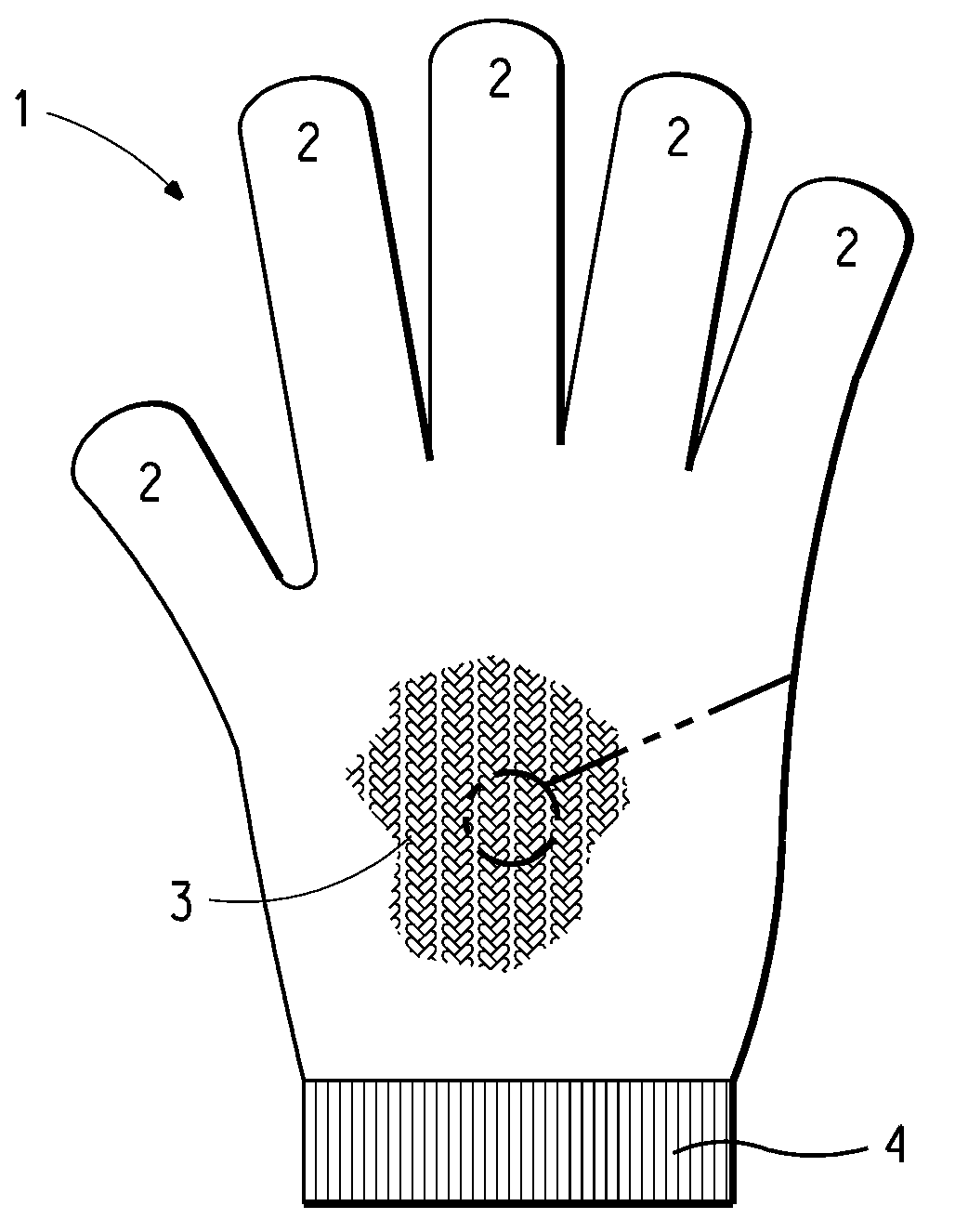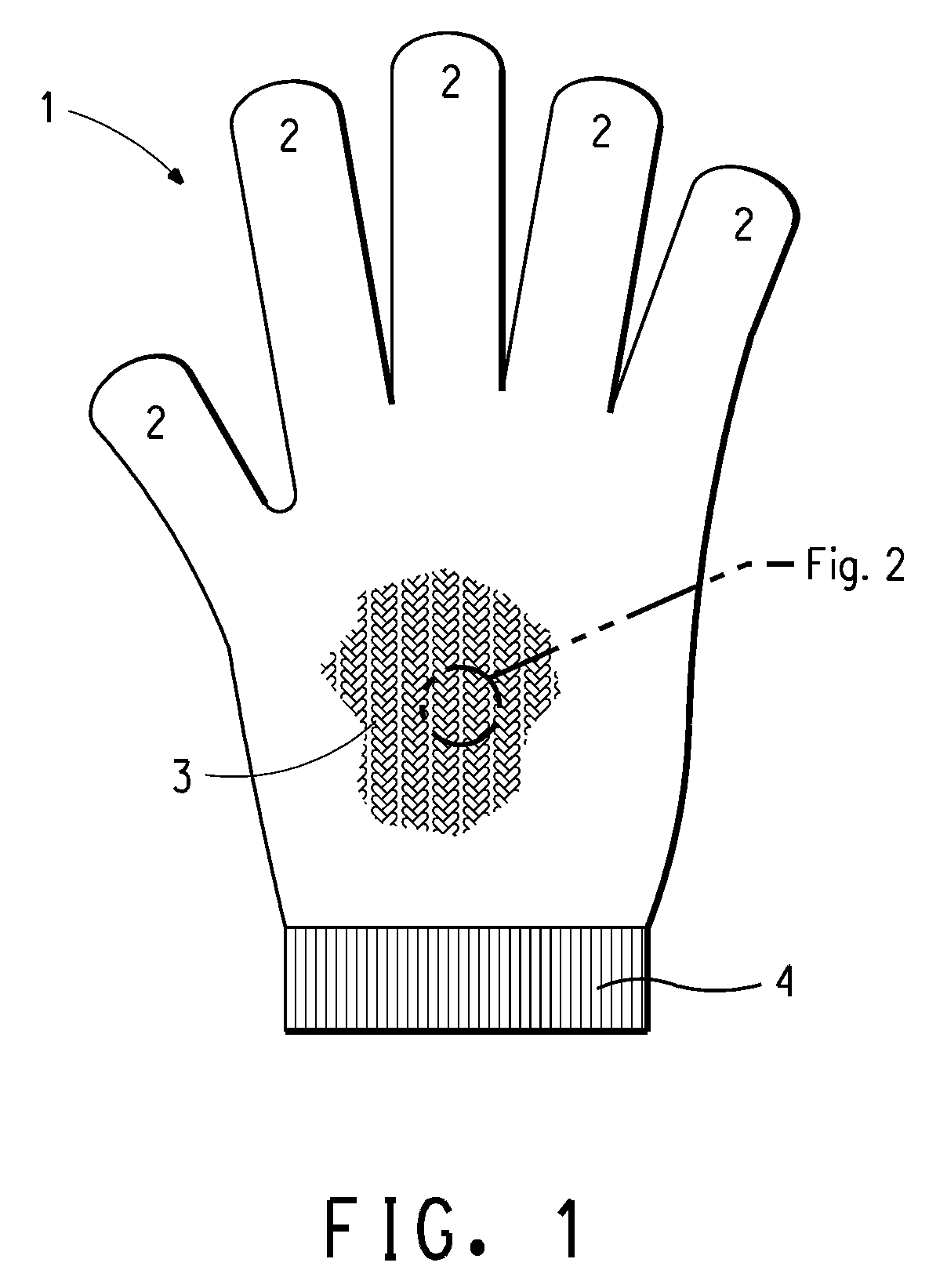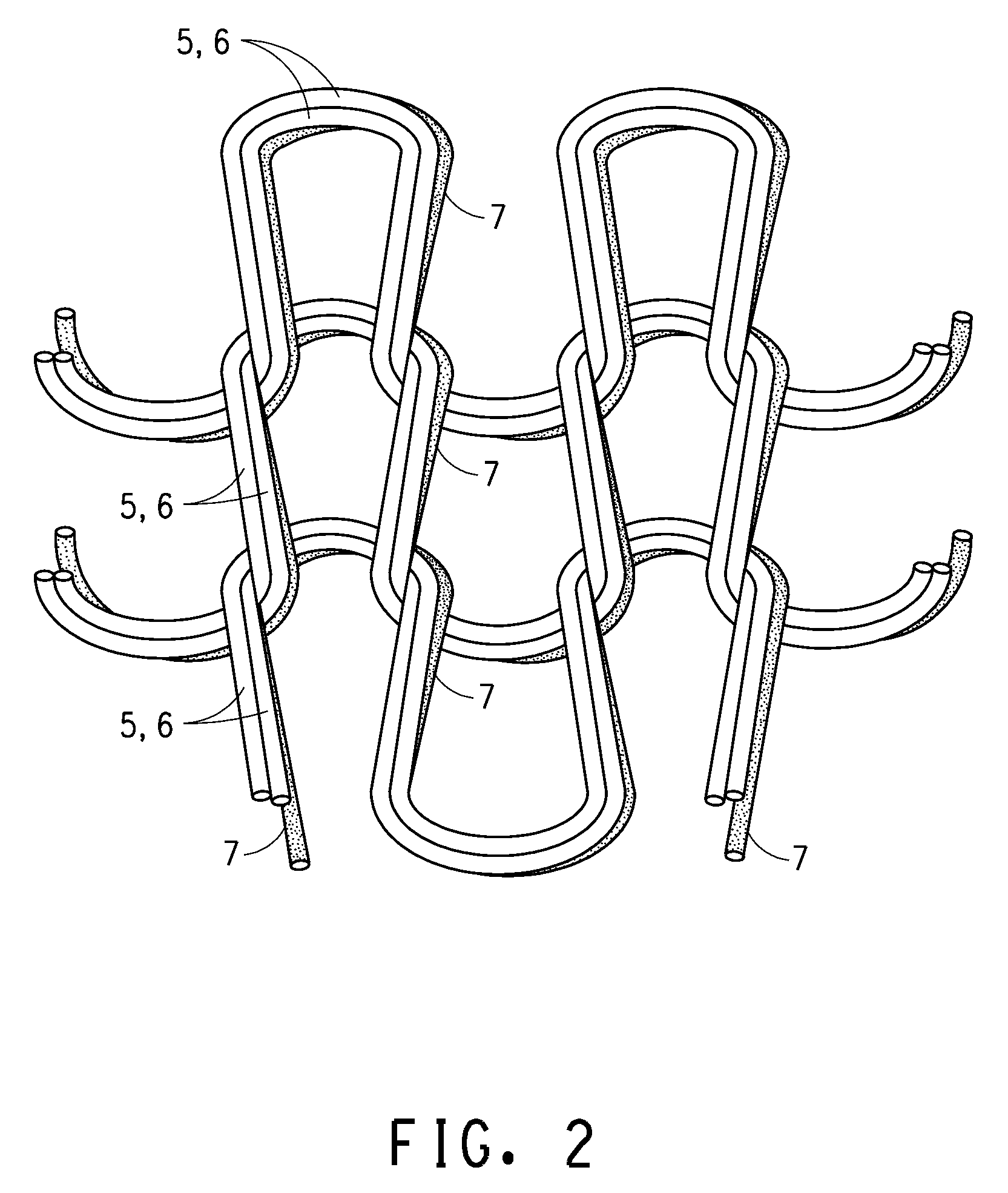Cut-resistant gloves containing fiberglass and para-aramid
a technology of fiberglass and para-aramid, which is applied in the field of improved construction of cut-resistant knitted gloves, can solve the problems of bare glass fiber, high hardness, and easy absorption of glass fiber, and achieves the effects of reducing the number of cuts, and improving the quality of knitted gloves
- Summary
- Abstract
- Description
- Claims
- Application Information
AI Technical Summary
Benefits of technology
Problems solved by technology
Method used
Image
Examples
example
[0041]Cut-resistant composite yarns were made as follows and collected on individual bobbins. Cut-resistant Composite Yarn 1A was made with a core of 200 dtex (200 denier) glass fiber yarn combined with a 590 dtex (532 denier or 20 / 2 cotton count) poly(paraphenylene terephthalamide) staple fiber spun yarn. These combined core yarns were wrapped by a single helically wrapping yarn of 480 dtex (440 denier) poly(paraphenylene terephthalamide) continuous filament textured yarn.
[0042]Cut-resistant Composite Yarn 1B was identical to 1A except the wrapping yarn was replaced with 560 dtex (500 denier) aliphatic polyamide (nylon) continuous filament textured yarn.
[0043]Cut-resistant Composite Yarn 1C with a core of 200 dtex (200 denier) glass fiber yarn wrapped by a single helically wrapping yarn of a 295 dtex (266 denier or 20 / 1 cotton count) poly(paraphenylene terephthalamide) staple fiber spun yarn.
[0044]Cut-resistant Composite Yarn 1D was made with a core of 200 dtex (200 denier) glass f...
PUM
| Property | Measurement | Unit |
|---|---|---|
| linear density | aaaaa | aaaaa |
| linear density | aaaaa | aaaaa |
| linear density | aaaaa | aaaaa |
Abstract
Description
Claims
Application Information
 Login to View More
Login to View More - R&D
- Intellectual Property
- Life Sciences
- Materials
- Tech Scout
- Unparalleled Data Quality
- Higher Quality Content
- 60% Fewer Hallucinations
Browse by: Latest US Patents, China's latest patents, Technical Efficacy Thesaurus, Application Domain, Technology Topic, Popular Technical Reports.
© 2025 PatSnap. All rights reserved.Legal|Privacy policy|Modern Slavery Act Transparency Statement|Sitemap|About US| Contact US: help@patsnap.com



